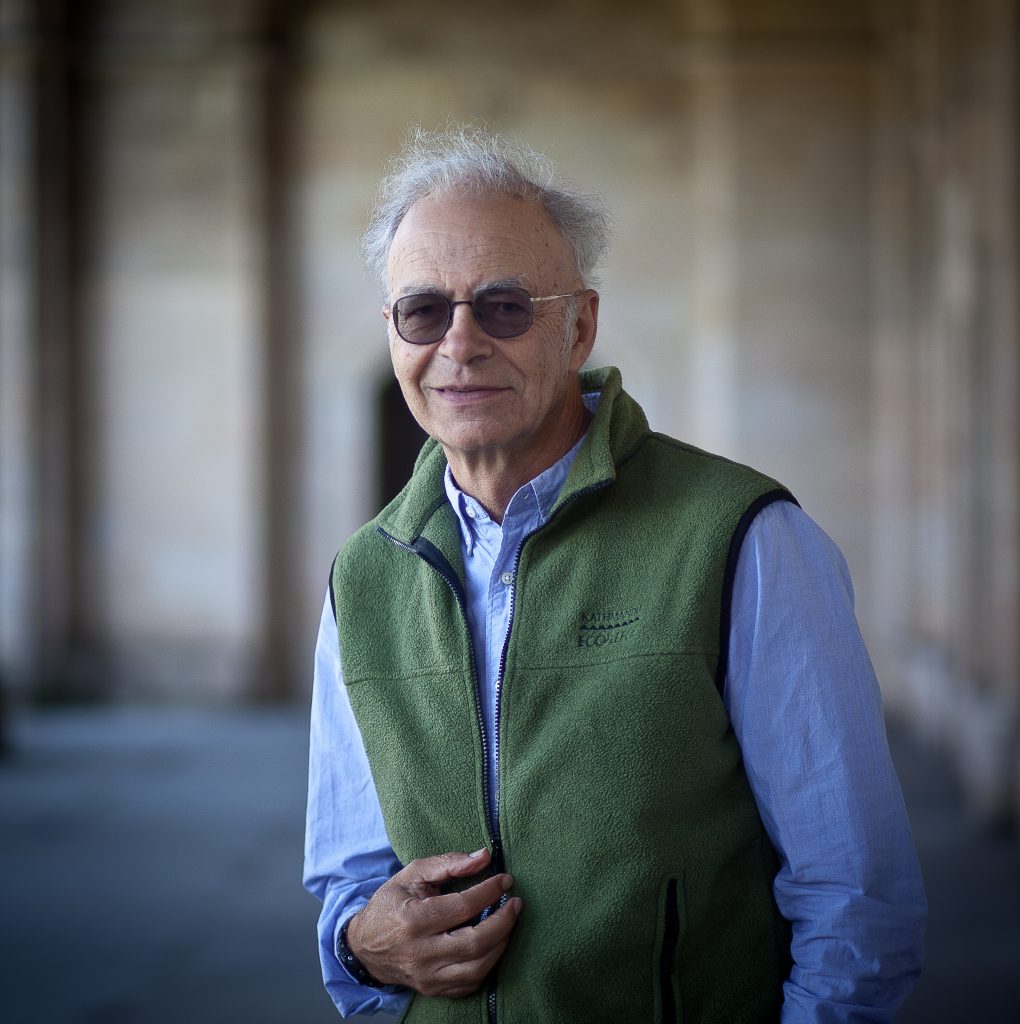“How ought I to live?”
Peter Singer
“How ought I to live?”
Peter Singer
Philosopher

Join Our Mailing List
Sign up below and we'll send you occasional updates,
PS I think the ultimate question is ‘how ought I to live?’ It’s a question which encourages us to reflect on the way we’re living, on the goals that we explicitly or implicitly have in our life, and whether those goals stand up to critical thinking. That is the fundamental question we should be asking ourselves.
KP Where ought one to look for some kind of guide for how we ought to live?
PS The philosophical tradition is a place where you would at least start looking for answers, because that’s where the question has been talked about for a long time. I don’t think you should be trying to reinvent the wheel, or start from the beginning again. Make yourself familiar with the philosophers who have addressed the question, and think about that critically. Don’t assume that any particular thinker has the right answer, but reflect on it and see whether it can be improved upon.
KP Do you think it helps to wed yourself to a particular ideology or a faith?
PS No, I think that that is likely to block the kind of critical thought I have in mind, because then you start to be committed to something, and you’re not open to critical reflection on the foundations of your thought. So, I would say try to stay open minded – explore other ideas and faiths, but remain open to the possibility that they could be mistaken.
KP You have arrived at your own perspective through this kind of thinking…
PS I think that’s true. I feel that it [utilitarianism] is something that has stood up to the reflection and examination that I have given it, and I haven’t seen good arguments against it. It’s always conceivable that I might change my mind, as I have changed my mind about some aspects of it – but the idea that what we ought to be doing is what will bring about the best consequences or do the most good in the world, seems to be something that has stood up to various other objections.
KP Humans are not solely rational creatures, do you think that critical thinking is basically the only place we can derive an answer to that question?
PS Yes, it is really impossible to have a thorough critique of the idea of rationality. You might say there are times when we ought not to think things through, but to act on our emotions – but if you say that, you’re already reasoning in order to reach that conclusion. You will need to produce arguments about why there are some circumstance in which we ought not to reason, and other circumstances where we ought to reason. So I think reason is still the guide and the judge for us, it is the only way of being consistent.
KP How do you respond to that question about how we ought to live?
PS I think we ought to live in such a way as we will make the world a better place. Insofar as it’s within our powers, I think we ought to do the most good we can, in order to make the world the best possible place that we can. I agree we are not saints, we are not completely rational beings and we all want to have lives that are rewarding for ourselves as well, and for that reason we cannot focus our entire lives on how to make the world a better place – that can be too demanding. Though I would add that doing good in the world can be more harmonious with having a rewarding life for ourselves that we would have necessarily expected.
KP What do you mean by doing good – is it simply the greatest good for the greatest number?
PS That maxim is a bit misleading, because it means that you are doing the right thing if you please 51% of the population – and clearly, utilitarians never really meant that. It’s not that you always go for the majority, but I do think that what we ought to be doing is improving the well-being of all of those affected by our actions
KP In evolutionary terms we are essentially driven by survival instinct, why then ought we to bother about people who will not aid our survival, nor indeed the survival of our social group?
PS Because evolution has no moral direction. It has shaped us, but it is no guide to how we ought to live.
KP Can you suggest some fields (ones that especially concern you), where people might apply this question of how we ought to live to?
PS I’m especially concerned about global poverty, the suffering of animals, and climate change. I’d like people to make a serious commitment to donating to effective organizations helping the poor (see www.thelifeyoucansave.org), and to go vegan, or vegetarian, or at a minimum boycott animal products from factory farms. As far as climate change is concerned, we can try to reduce our greenhouse gas footprint, but it is perhaps more important to be active citizens and get involved politically on this issue.